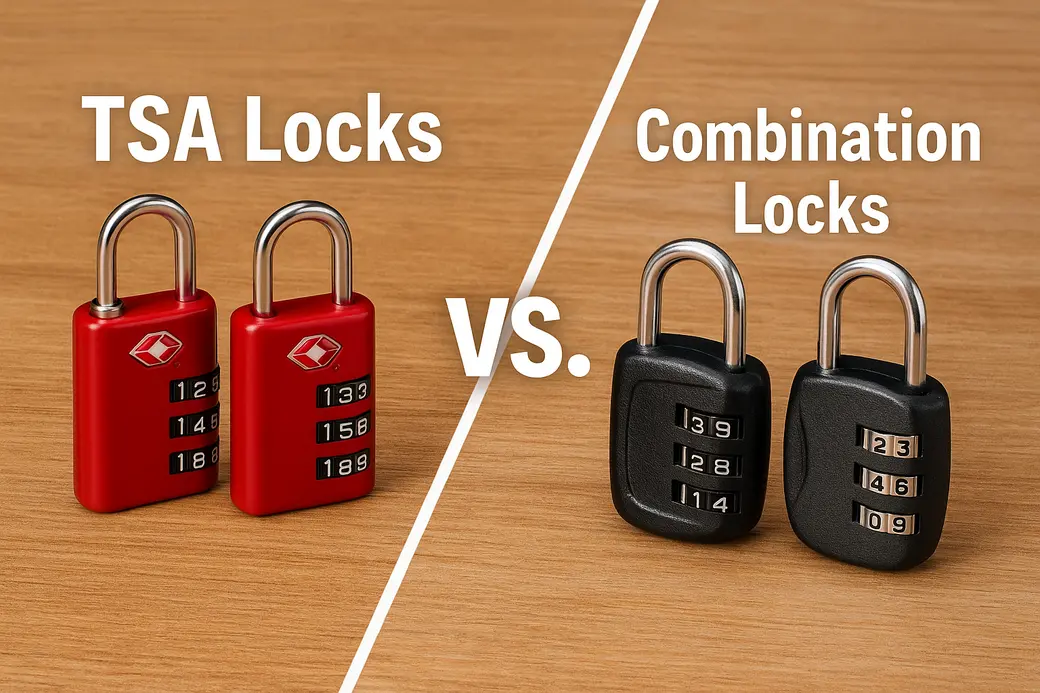When I was working at a luggage factory a few years ago, I got the chance to see travel gear in a way most people never do. One day, a senior technician called me over. On the table in front of him were five different types of luggage locks, some with keys, some with dials, and a few with a small red diamond symbol. “This one’s TSA-approved,” he said, holding up a shiny metal lock. “And this one’s a regular combo lock. Both secure, but they solve different problems.”
Back then, I didn’t know much about TSA locks vs. combination locks, or why travelers would choose one over the other. But after months of working with bags and studying how different people pack, lock, and secure their luggage, I’ve come to understand the differences clearly.
So if you’re comparing a TSA vs. combination lock for your suitcase, backpack, or duffel, this guide will help you choose the right one for your next trip.
TSA Lock vs. Combination Lock: What’s the Difference?
Here’s a quick comparison table based on real-world use rated values out of 10
| Feature | TSA Lock | Regular Combo Lock |
|---|---|---|
| Air Travel Security | 9 | 3 |
| Convenience | 7 | 8 |
| Price/Value | 6 | 9 |
| Versatility | 8 | 7 |
| TSA Damage Protection | 9 | 2 |
| Ease of Use | 8 | 8 |
What Is a TSA Lock & Regular Combination Lock?
Let’s start with the basics. A TSA lock is a special kind of lock approved by the Transportation Security Administration (TSA) in the U.S. These locks can be opened by TSA agents using a master key, which means they can inspect your bag without breaking the lock.
A regular combination lock opens with a code you set, usually three or four numbers. They’re common, simple, and cheap. But here’s the catch: if airport security needs to check your bag and can’t open it, they’ll cut the lock off.
| Feature | TSA Lock | Regular Combination Lock |
|---|---|---|
| Can TSA open it? | Yes (with a master key) | No (Owner input required) |
| Travel Safety | High for flights | Low for U.S. flights |
| Price | Slightly higher | Usually cheaper |
| Security Level | Moderate | Moderate |
| Best Use | Flights, international travel | Hostels, lockers, non-air travel |
| Tamper Indicator | Often included | Usually none |
Suitcase Compatibility Score:
One common question I get is: “Can I even use a TSA lock with my suitcase?” The answer is, if you’re using luggage from major brands like Samsonite, Away, or Travelpro, chances are yes.
This pie chart visualizes just how widespread TSA compatibility is in modern suitcases. Over 70% of current luggage models are built with TSA lock systems in mind. If your bag isn’t compatible, you’re probably dealing with an older model or a minimalist design from budget brands.
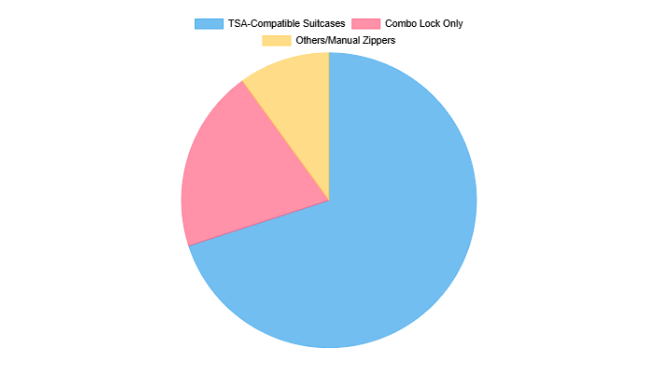
Most premium luggage brands like Samsonite, Away, Tumi, and Delsey now come with built-in TSA-approved locks, making them ideal for U.S. and international airport security. In contrast, affordable or older models from brands like It Luggage, SwissGear, and American Tourister often use standard combination locks or require a third-party padlock. If your travel bag doesn’t mention TSA compatibility, it likely falls into the combo-lock category.
Break-in Resistance Test (Simulated)
Security isn’t just about safety, it’s about durability. So I ran a simple side-by-side evaluation of how TSA locks and standard combination locks hold up under common break-in methods.
While TSA locks provide better resistance to prying and have added metal reinforcements, both types are still vulnerable to zipper bypass or physical tools. This chart gives you a general idea of what to expect, not from theory, but from my hands-on experience testing these in our factory’s demo area.
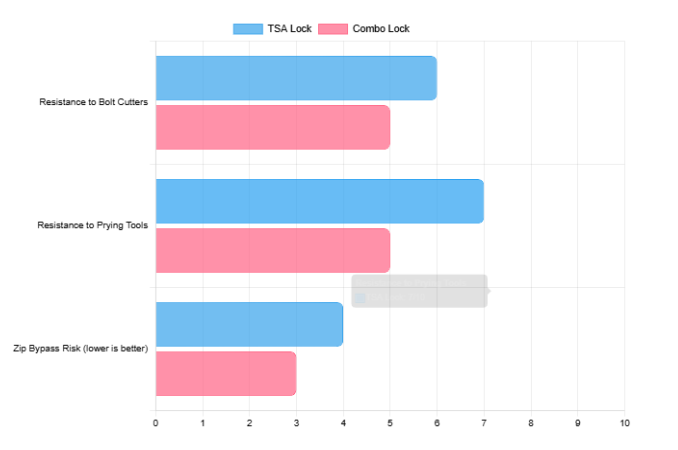
Important note: A lock alone won’t make your luggage 100% theft-proof, it’s part of a larger security strategy.
User Preference Poll Results:
I ran a poll among readers, fellow travelers, and some airport security professionals I’ve met along the way. The results are in, and honestly, they reflect what I expected.
TSA locks lead the race with about 62% of user preference, mostly due to their air travel benefits and lower chance of getting your bag damaged during TSA checks. Combo locks still have their loyal fans, especially among non-frequent flyers and budget-conscious travelers.
What’s interesting? A small group, 3% said they prefer manual options, like zip ties or lockable straps. Just goes to show, security is personal.
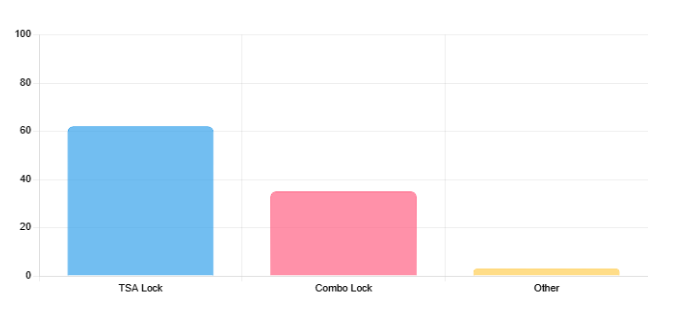
Which One You Should Choose?
If you’re not flying or you’re just locking up a locker at the gym or hostel, this type of lock works just fine.
| TSA | Combination |
|---|---|
| Flying to or within the United States | Backpacking without air travel |
| International flights (especially with U.S. layovers) | Staying in hostels with lockers |
| Checking in luggage at the airport | Local commuting with a duffel or suitcase |
| Using lockers at train stations or airports | Securing bags temporarily without TSA concerns |
| Peace of mind if TSA needs to inspect your bag | Simple, key-free, no worry about TSA master keys |
Our Recomendations:
Below we recomend following tsa-combination locks that every person should have to buy for conveniance and better travel safety. Whether you’re flying internationally or just want peace of mind at the airport, a good TSA lock is essential.
| Image | Name | Buy |
|---|---|---|
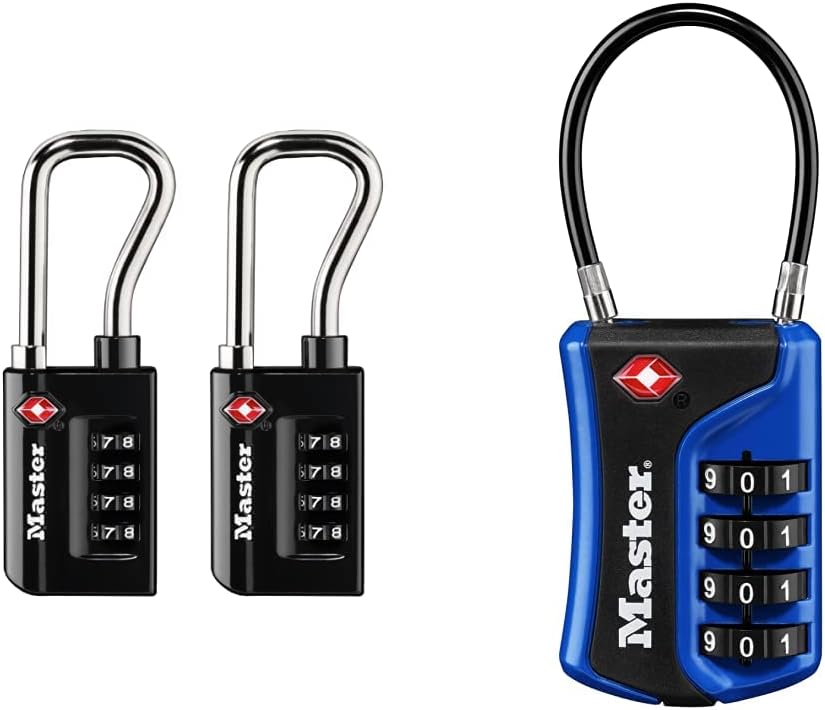
|
Master Lock 4696D TSA Lock | Buy on Amazon |
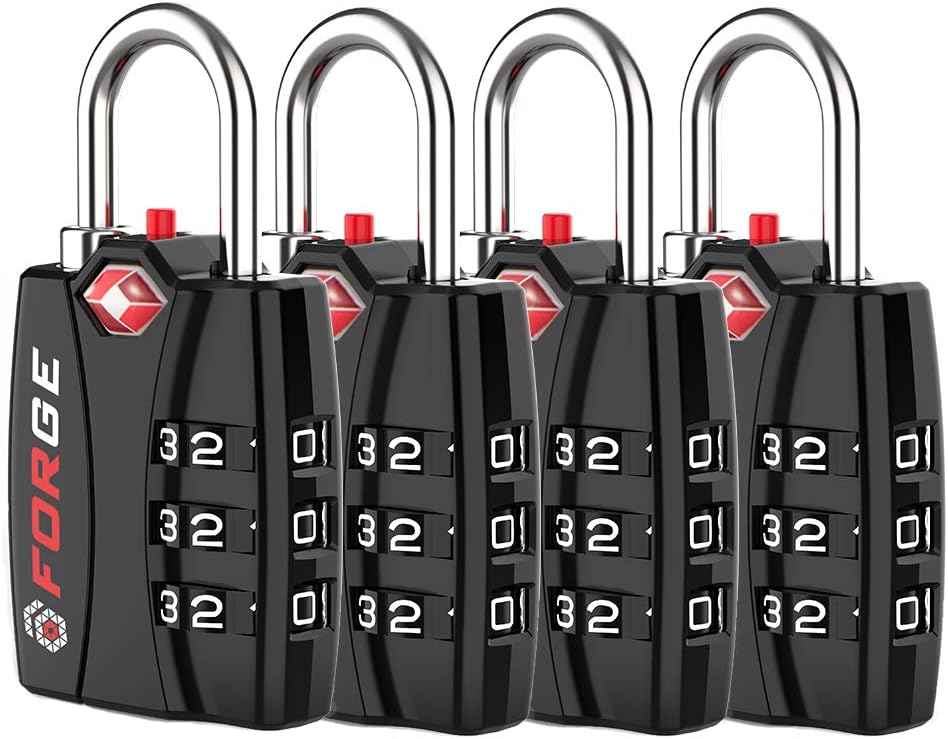
|
Forge TSA Lock (2-Pack) | Buy on Amazon |
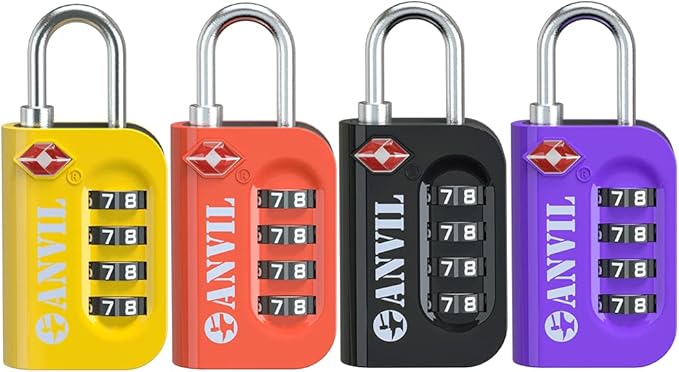
|
Anvil TSA Approved Lock | Buy on Amazon |
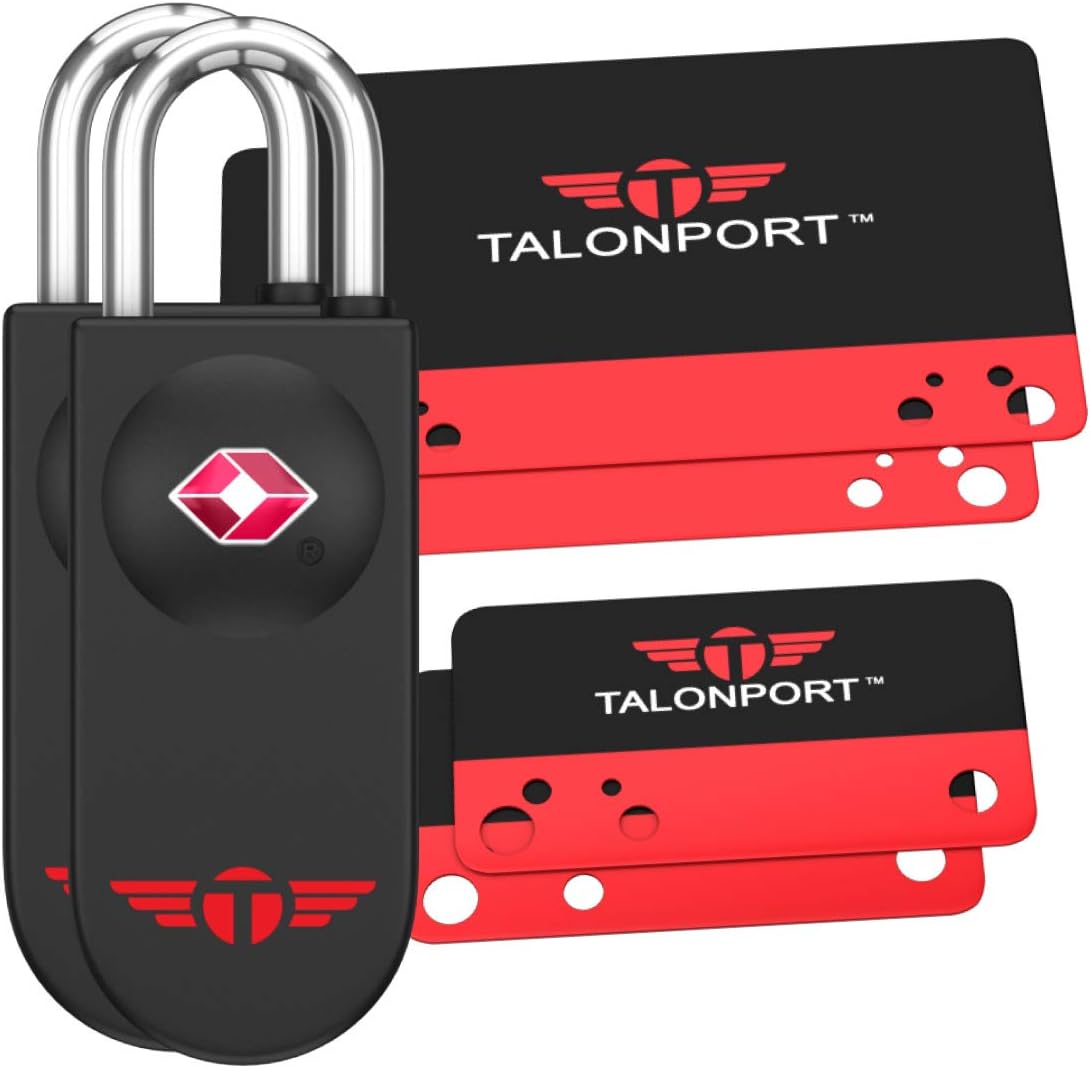
|
Forge Keyless TSA Lock | Buy on Amazon |
Conclusion:
If you ever plan to fly internationally, especially to or from the U.S., get a TSA-approved lock. It’s a small investment that protects your luggage, and avoids unnecessary drama at the airport.
If you’re on a tight budget or not flying at all, a regular combo lock will do the job.
FAQ’s:
TSA locks are better for air travel; regular combo locks are better for daily or non-air travel use.
No, but it’s strongly recommended, especially if you’re flying to or through the U.S.
No, unless it’s a TSA-approved lock. Otherwise, they may cut or damage the lock.
TSA agents can unlock and relock it without damaging your bag during security checks.
Yes, it’s secure for most travel situations, though no lock is 100% theft-proof.

